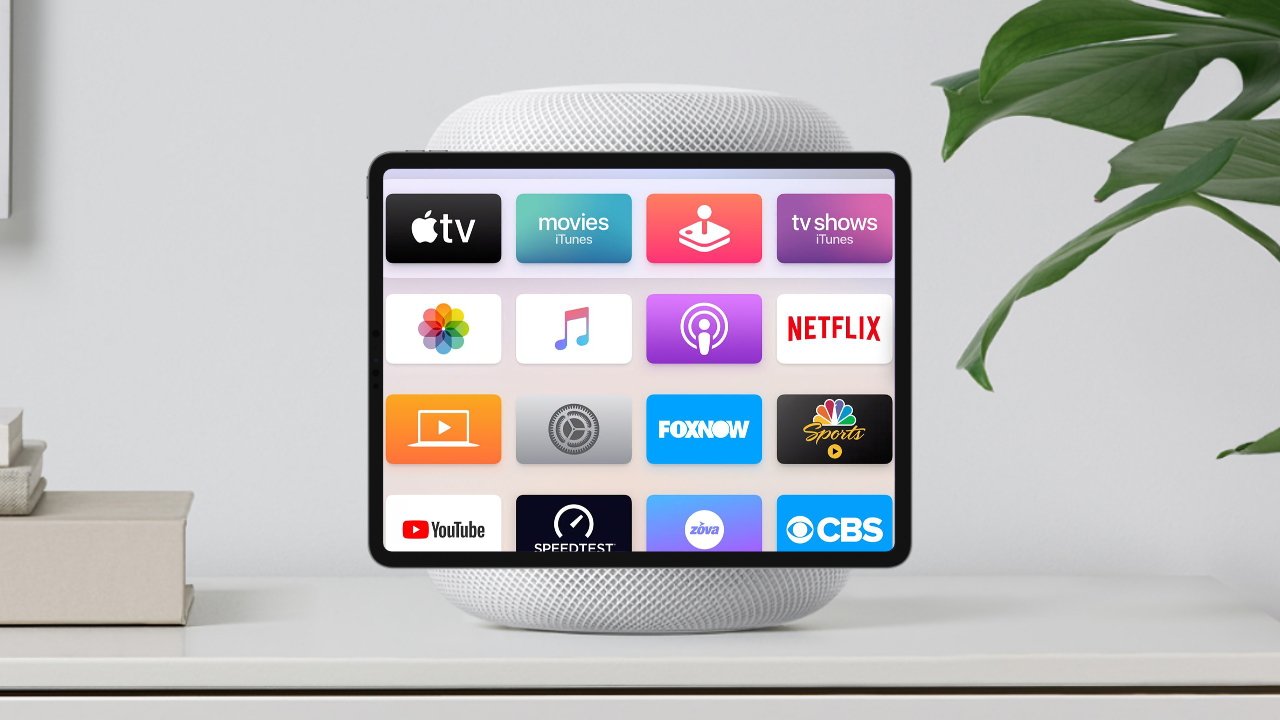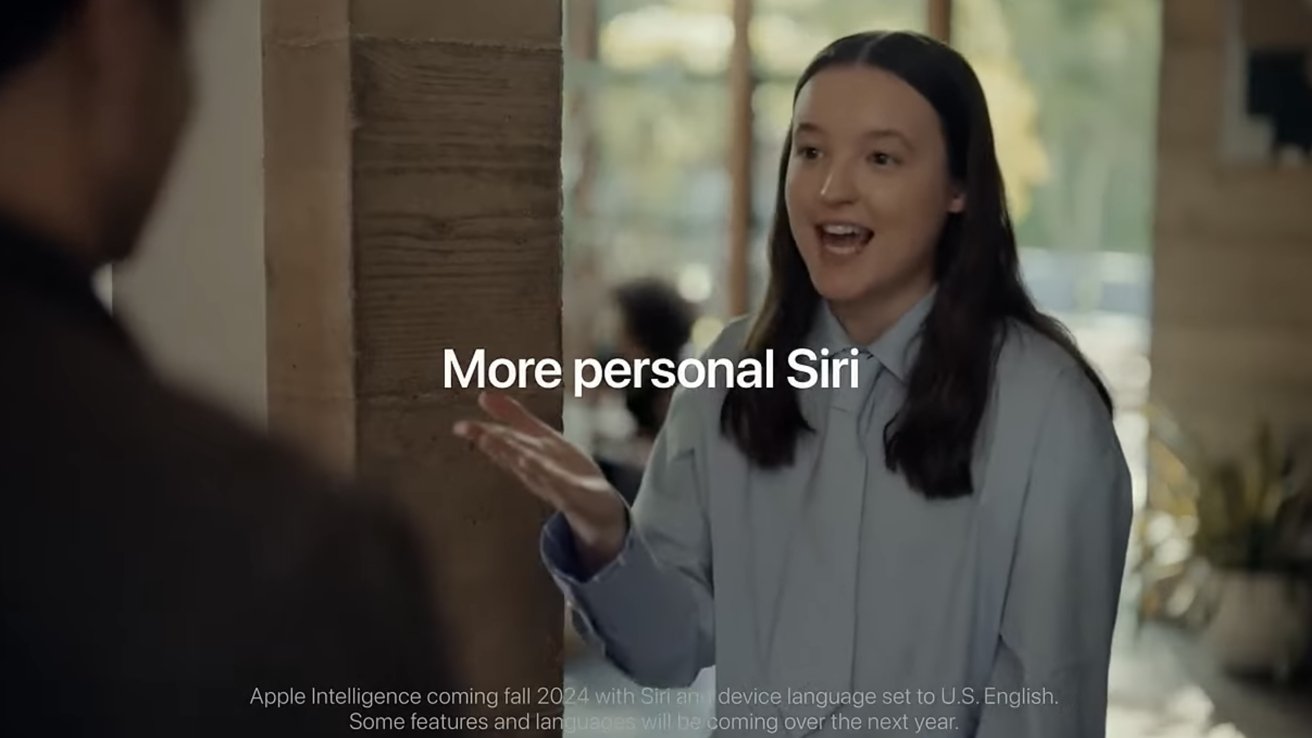Apple's Home Hub pushed back to 2026 after delayed Siri improvements
A report suggests that Apple will wait until a revamped Siri with contextual app data access launches to reveal its Home Hub project -- likely in 2026.

Apple's Home Hub won't be a HomePod with a speaker, but a separate display
The so-called Home Hub has been rumored for almost as long as the HomePod has existed. Users are interested in a "HomePod with an interactive display" similar to Google's and Amazon's products.
It seemed as if Apple would launch such a product line sometime soon, but according to the Power On newsletter, that launch will now occur in 2026. The Home Hub product is inherently tied to the contextual Siri and Apple Intelligence features that rely on app intents, which were delayed into the next year.
It's unclear when Apple will release the contextual Siri update, but we're likely to hear more about it during WWDC 2025. The annual developer conference starts on June 9, and while release windows likely won't be discussed, it should give some insight into how far along the feature is.
Delayed Apple Intelligence
Apple's reluctance to release the Apple Intelligence feature likely stems from the backlash it received around notification summaries. The hallucinations that feature produced around news headlines prompted the BBC to push back on the feature, which resulted in Apple pulling news notifications from summaries.

Apple's ad for contextual AI launched months before the feature was delayed. Image source: Apple
The contextual AI features that tie back to Siri are even more sensitive and cannot be allowed to be incorrect beyond a tiny threshold. Users can't be expected to double-check the work of the on-device LLM every time it asks for time-critical data.
Imagine if Apple's favorite demo of a mother landing at an airport getting the time, gate, or even day incorrect. If the user can't trust the result and has to go double-check, then there's not much point in the feature.
A leaked internal meeting suggested that the company at least had the feature working, and developers have been able to target the app intent system since iOS 18.2. However, the results were accurate only 80% of the time.
Perhaps Apple could try to be clever with the feature, as the "artificial intelligence" technology and underlying LLMs are far from foolproof. Instead of needing 100% accuracy in the text response, Apple could show data snippets in a refined GUI.
Yes, the text readout from the Apple Intelligence could still get things wrong, but the user could see the real data gathered in one place. Going with the previous example, instead of being told just a summary of data about your mother's flight arrival, be shown the ticket, iMessage snippet, and calendar data as a kind of on-screen bento.
Such a solution would require a display, which is where Home Hub comes in.
Home Hub, eventually
When Apple released the original HomePod, the headlines reflected that Siri wasn't up to the task of having its own device. Things haven't improved for the assistant much since then.

Apple's robot arm in action in a lamp controlled with hand gestures. Image source: Apple
It'll be hard for Apple to overcome the negative optics around Siri, so releasing a new Siri product today with no changes to the assistant would be a poor choice. And turning the big ship that is Siri takes time.
The initial launch of the Home Hub is expected to be a simple square-ish display that can be carried and mounted throughout the home. It will integrate with the user's data to show now-playing music, weather, and step-by-step recipes from Apple News.
A follow-up product to that initial inexpensive model is expected to act as more of an Apple Intelligence hub with a robotic arm. That arm could be powered by the technology demoed by Apple earlier in 2025.
That said, the report seems to contradict itself. If the model with Apple Intelligence is expected later, and that's the one that will rely on the contextual Siri and AI upgrades, then it may be unnecessary to delay the non-AI model.
But since Siri as a whole is seen as broken thanks to viral issues like it not being able to tell you today's date, it may not matter. Shipping a product built for Siri today would likely have it labeled as broken as the current Siri is on day one.
Apple needs new optics around Siri before it can sell people on the next Siri product. Which is why a delayed launch to 2026 makes sense, even if it is disappointing.
Rumor Score: Likely
Read on AppleInsider

Comments
Sure a 5.1 or 7.1 surround setup would undoubtedly be even better, but my apartment neighbours would probably complain every time I watched a war movie, so ... nope for now.
OTOH, I do need a reliable internet connection. And Apple doesn't make Airports (much less with one with a 5G modem.) Or offer a branded VPN.
As I have mentioned previously in other discussions, Home Hub is a much lower priority than Apple Intelligence and will require the latter to be extremely reliable to be of any use to Joe Consumer (the mainstream public, not geeky tinkerers).
Note that Home Hub is only useful at home (or other similar static locations) for a limited range of tasks. Apple Intelligence has a vastly wider scope since it will eventually be available to anyone with a modern/recent iPhone and thus useful on the go.
I still believe the touchpanel device makes zero sense. Everyone loves being attached to their iPhones (and to a lesser extent their Apple Watches). The smart home must be able to be controlled by a phone or maybe a watch. It makes far less sense to have to get up to fiddle around in some menu system hanging on a wall, especially if you live in a larger property where the touchpanel may be far away from where you are located (or worse, on a different floor).
We have seen this in the failure of home theater tablet control panels. Normal people don't want them.
A reliable Siri with Apple Intelligence takes top priority. And by reliable, we mean something like 99.99% reliable, not just 66%, 75%, 90% or 95% of the time. Trust me, if you or someone in your family has to get up to adjust the lights once out of four attempts, the smart home hub will be decommissioned and sent to the e-waste recycling center real quick.
And no one should be spending 10-15 minutes to configure a smartphone light socket or electrical outlet. This stuff needs to work nearly effortlessly for widespread adoption by Joe Consumer.
A truly useful "Home Hub" will eventually get here, probably 5 years after Apple Intelligence reaches release status. Remember that all consumer-facing AI is still alpha quality software here in Q2 2025.